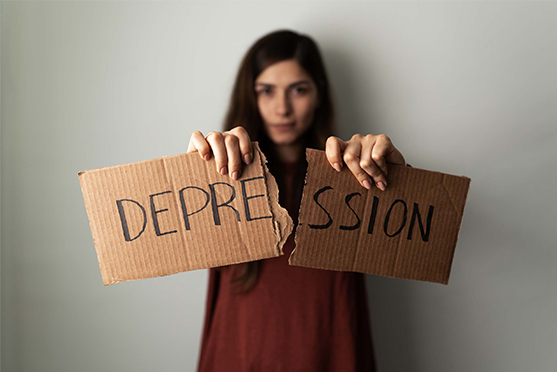Depression can feel like being stuck in a slow-moving fog. Days blur together. Energy slips through your fingers. Even small tasks feel like climbing a steep hill in heavy boots. And while medication can be helpful for many, it isn’t the only way forward. Some people prefer other routes—quiet steps that offer clarity and comfort without the side effects.
This is for those days when you want to feel a bit more like yourself. When you’re searching for tools that fit into your life, not ones that ask you to change everything at once, each of these seven approaches offers a way to soften the edges and steady your footing.
None of them promise instant change. But together, they create a rhythm that helps the heaviness feel a little less permanent.
Create a Simple Daily Rhythm
When you’re feeling low, time loses structure. Mornings blend into evenings. It’s easy to stay in bed or zone out for hours. A gentle routine brings back shape to the day—without pressure.
Start small. Focus on three anchors:
- Wake up and go to bed at roughly the same time.
- Eat something at consistent times, even if it’s simple.
- Add one “purpose task” per day, like watering a plant or folding laundry.
- These aren’t chores. They’re cues to your brain that the day has shape. And when the day has shape, thoughts become easier to manage.
Move Your Body—Even a Little
Movement is often the last thing depression wants. The weight in your limbs feels real. But gentle motion tells your body, we’re still here. It reminds your nervous system that it’s okay to shift out of stillness.
You don’t need a full workout. Instead, you can try these:
- Stretching in bed before getting up.
- Walking around your room during a song.
- Stepping outside for five minutes of fresh air.
- Doing light housework while listening to calming music.
- Even a few minutes counts. Movement changes your chemistry. It nudges your brain toward more balanced moods.
Write Without Pressure
Thoughts build up when they stay trapped inside. Writing helps give them room to move. But this isn’t about journaling for insight or keeping a diary. It’s about getting thoughts out so they stop looping.
Try the “write and park” method:
- Set a timer for five minutes.
- Write everything on your mind—fears, frustrations, or just how tired you are.
- Stop when the timer ends. Don’t reread it. Just leave it.
- This creates mental space. It helps release emotional weight. You don’t have to solve anything. Just let it exist outside your body for a while.
Cut the Noise in Small Doses
Too much stimulation—news, social media, notifications—can fuel the fog. It floods your brain with more than it can sort through. Quiet moments matter more when your thoughts already feel loud.
To cut the noise:
- Turn off push notifications for non-urgent apps.
- Keep screens out of your sleep space.
- Give yourself 15 screen-free minutes in the morning and at night.
- Use gentle sounds—nature, white noise, calm music—to soothe your space.
- Quiet isn’t empty. It’s where your nervous system starts to reset.
Eat to Stabilize, Not to Fix
Food can affect how you feel, but this isn’t about perfection. You don’t need a full diet overhaul. Instead, aim for steady fuel. Your brain needs nutrients to think clearly, especially when it’s under stress.
Try these low-effort shifts:
- Eat something within two hours of waking up
- Keep a few “easy reach” snacks handy—nuts, fruit, crackers, yogurt.
- Drink water slowly throughout the day.
- Try warm meals when possible, such as soups, eggs, and oats. Comfort counts.
- This isn’t about fixing depression with food. It’s about supporting your body, so it has the strength to face hard days.
Let Others In—On Your Terms
Isolation feeds depression. But reaching out doesn’t have to mean long conversations or telling your full story. It can be small and quiet.
Some ways to let people in without overwhelming yourself:
- Text a friend a simple update like, “Rough day, but I’m here.”
- Sit in the same room with someone, even in silence.
- Say “yes” to a short visit or a five-minute call.
- Ask someone to help with one simple task—like picking something up or sending a reminder.
- Human connection doesn’t need to be deep to be powerful. Just being seen is a step toward feeling more grounded.
Create One Tiny Joy Ritual
Joy might feel out of reach. But even a sliver of comfort—a small good thing—can shift the tone of a day. This is about micro-joys. Ones that ask little but give back more than expected.
Try adding just one to your day:
- Light a candle at the same time each night.
- Watch the same calming video or listen to a favorite track before bed.
- Make tea slowly and sip without doing anything else.
- Sit by a window and notice the light.
- This is not a fix. It’s a signal: there is still softness available in the day. And that signal is something depression can’t erase.
A Steadying Note
You don’t need to do all seven at once. Choose one that feels light. Then return to this list when you’re ready for the next. The weight of depression may not lift in a day—but each small step helps lighten the load.
Overcoming depression without medication is possible for many, but it takes patience and care. These strategies don’t replace support from therapists, family, or medical professionals when needed—but they are powerful in their own right. They reconnect you to moments. They create room for rest. And they remind you that change can start quietly, even in the middle of the storm.

